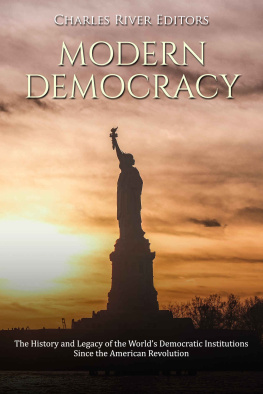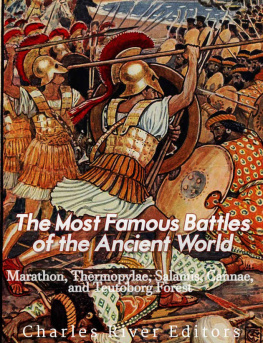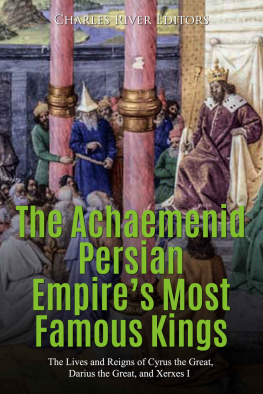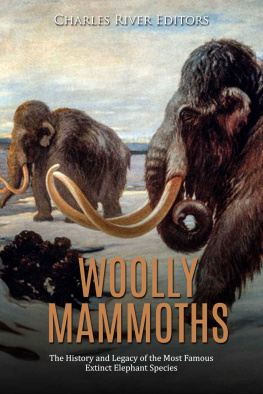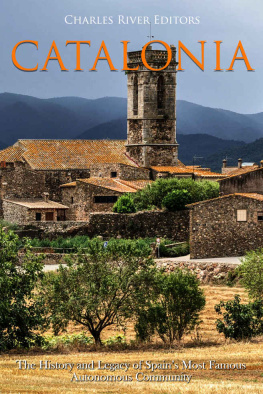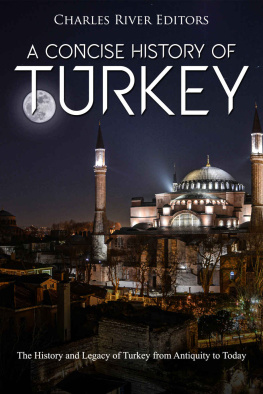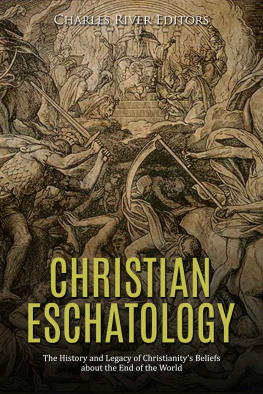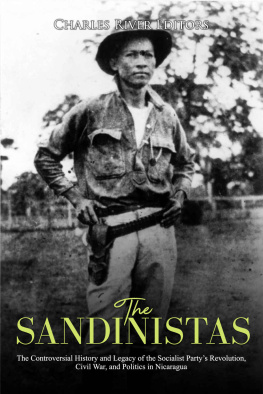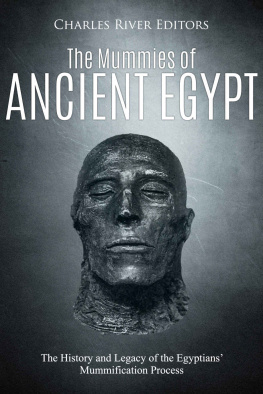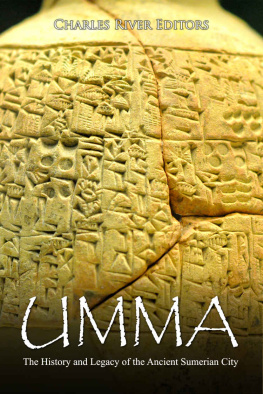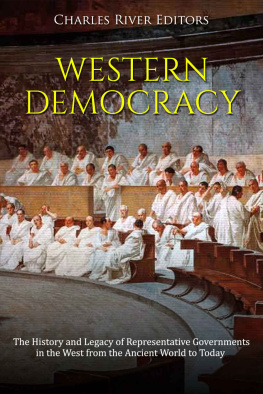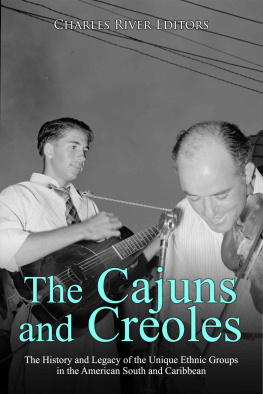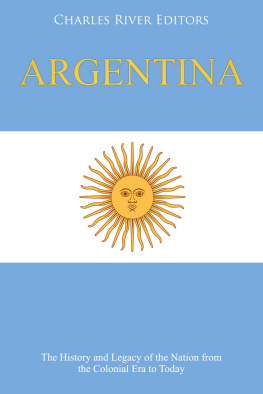Charles River Editors - Modern Democracy: The History and Legacy of the World’s Democratic Institutions Since the American Revolution
Here you can read online Charles River Editors - Modern Democracy: The History and Legacy of the World’s Democratic Institutions Since the American Revolution full text of the book (entire story) in english for free. Download pdf and epub, get meaning, cover and reviews about this ebook. year: 2019, publisher: Charles River Editors, genre: Politics. Description of the work, (preface) as well as reviews are available. Best literature library LitArk.com created for fans of good reading and offers a wide selection of genres:
Romance novel
Science fiction
Adventure
Detective
Science
History
Home and family
Prose
Art
Politics
Computer
Non-fiction
Religion
Business
Children
Humor
Choose a favorite category and find really read worthwhile books. Enjoy immersion in the world of imagination, feel the emotions of the characters or learn something new for yourself, make an fascinating discovery.
- Book:Modern Democracy: The History and Legacy of the World’s Democratic Institutions Since the American Revolution
- Author:
- Publisher:Charles River Editors
- Genre:
- Year:2019
- Rating:4 / 5
- Favourites:Add to favourites
- Your mark:
- 80
- 1
- 2
- 3
- 4
- 5
Modern Democracy: The History and Legacy of the World’s Democratic Institutions Since the American Revolution: summary, description and annotation
We offer to read an annotation, description, summary or preface (depends on what the author of the book "Modern Democracy: The History and Legacy of the World’s Democratic Institutions Since the American Revolution" wrote himself). If you haven't found the necessary information about the book — write in the comments, we will try to find it.
Modern Democracy: The History and Legacy of the World’s Democratic Institutions Since the American Revolution — read online for free the complete book (whole text) full work
Below is the text of the book, divided by pages. System saving the place of the last page read, allows you to conveniently read the book "Modern Democracy: The History and Legacy of the World’s Democratic Institutions Since the American Revolution" online for free, without having to search again every time where you left off. Put a bookmark, and you can go to the page where you finished reading at any time.
Font size:
Interval:
Bookmark:
By Charles River Editors
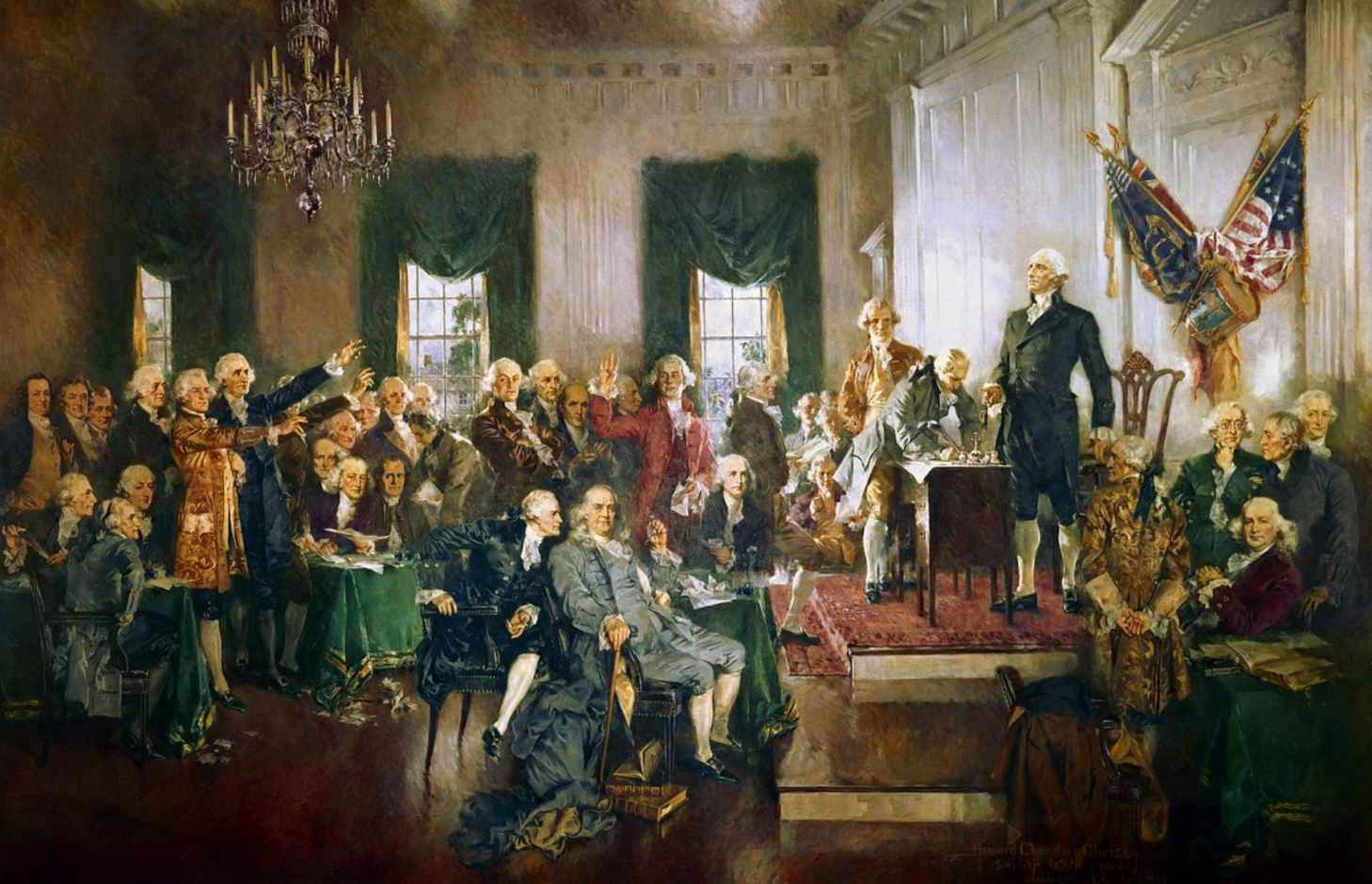
Howard Chandler Christy's Scene at the Signing of the Constitution of the United States

Charles River Editors provides superior editing and original writing services across the digital publishing industry, with the expertise to create digital content for publishers across a vast range of subject matter. In addition to providing original digital content for third party publishers, we also republish civilizations greatest literary works, bringing them to new generations of readers via ebooks.
Sign up here to receive updates about free books as we publish them , and visit Our Kindle Author Page to browse todays free promotions and our most recently published Kindle titles.
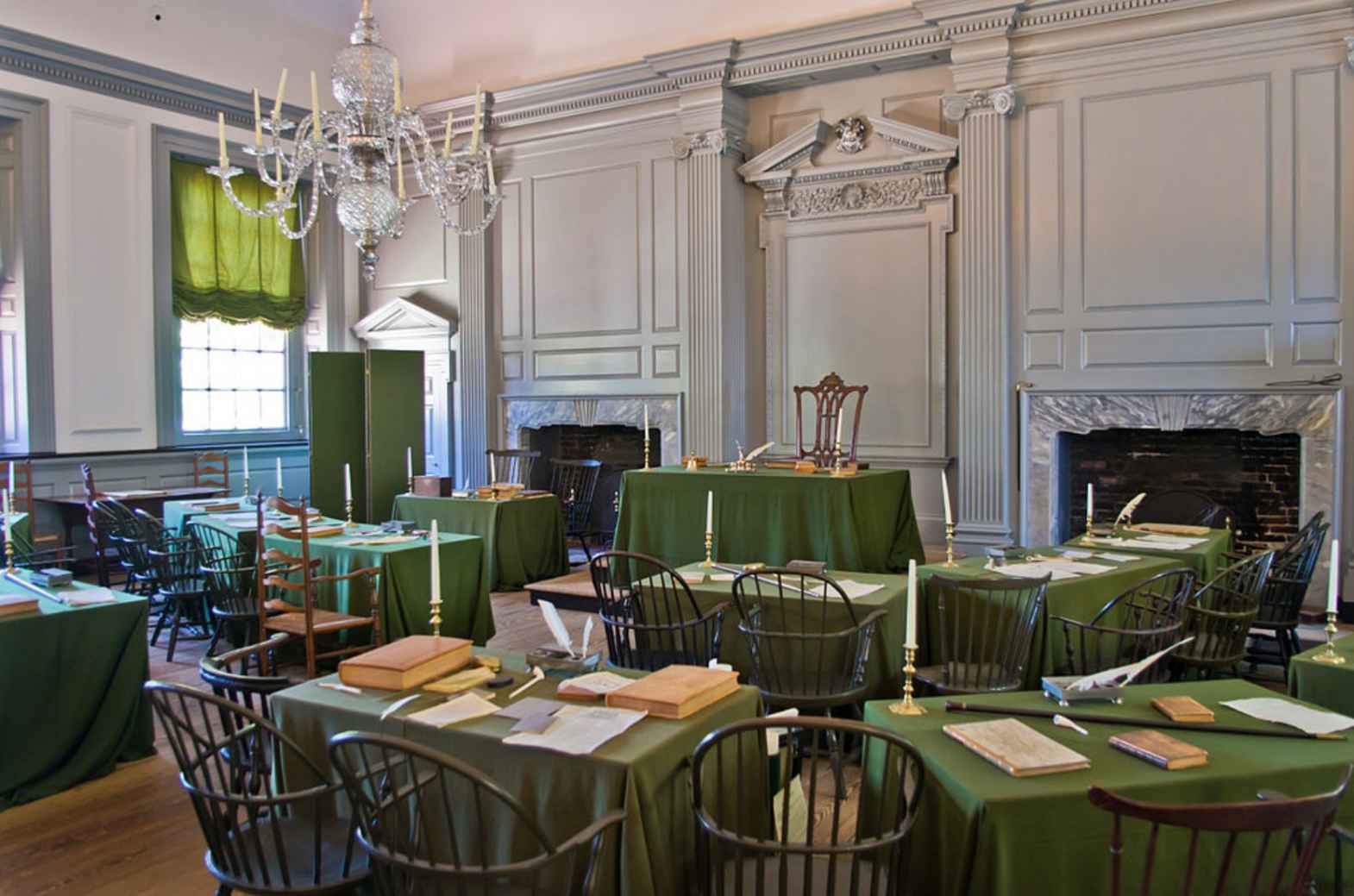
Antoine Taveneauxs picture of Independence Halls Assembly Room
All communities divide themselves into the few and the many. The first are the rich and well born, the other the mass of the people. The voice of the people has been said to be the voice of God; and however generally this maxim has been quoted and believed, it is not true in fact. The people are turbulent and changing; they seldom judge or determine right. Give therefore to the first class a distinct, permanent share in the government. They will check the unsteadiness of the second, and as they cannot receive any advantage by a change, they therefore will ever maintain good government. Can a democratic assembly, who annually revolve in the mass of the people, be supposed steadily to pursue the public good? Nothing but a permanent body can check the imprudence of democracy. Their turbulent and uncontroling disposition requires checks. Alexander Hamilton, quoted in Notes of the Secret Debates of the Federal Convention of 1787
In todays modern world every political regime, even the most authoritarian or repressive, describes itself as democracy or a Democratic Peoples Republic. The concept of rule by the people, on behalf of the people, has come to be accepted as the norm, and very few would overtly espouse the cause of dictatorship, absolute monarchy or oligarchy as the most desirable political system upon which to base the government of any country.
It is also generally accepted that democracy, as a political ideology, began in Greece, specifically in Athens, in the 7th century BCE and reached its zenith in the 5 th century under the leadership of Pericles. Dating an exact starting point is impossible, but at the beginning of the 7th century BCE, Solon inaugurated a series of reforms that began the movement away from rule by individuals, or tyrants, and by the end of that century the reforms of Cleisthenes provided the basis of the Athenian democratic system that culminated in the radical institutions introduced by Ephialtes and Pericles in the 5th century. The result was the first, and possibly only, truly participative democratic state.
At the same time, the ancients would not have recognized, or accepted, any of todays modern versions of democracy as being truly democratic. A rejection of dictatorships masquerading as democracies would be understandable, but the ancients would have been equally scathing of Western-style representative democracies that they would undoubtedly have seen as anti-democratic. The key to democracy, as far as the Greeks and Romans were concerned, was active participation by the citizen body in all political aspects of life.
While the French Revolution tried and ultimately failed to bring about an almost fully democratic system, the fledgling United States of America managed to bring about one of the most enduring forms of democratic government in the 1780s. The Constitution of the United States was not the first written expression of the democratic ideal, but it certainly was the most perfect in the context of the times. In the entire history of the British Empire, only two territories would attempt a unilateral declaration of independence. The first was the United States, and the second, 189 years later, was the rebel territory of Southern Rhodesia in the constellation of British African territories. The sheer audacity, in 1776, of a subject territory of the British Crown declaring itself independent sent shockwaves through the imperial establishment, setting into motion a reevaluation of British overseas policy and beginning the boldest experiment in democracy to date.
The seeds of the American Revolution could be found in the fundamental distrust of distant government held by a local population of an independent character confronting a continent almost infinite in its scope. The cusp upon which this embryonic republic stood represented the first authentic opportunity to date for a European people, egalitarian in outlook and separated from the stifling social conventions of Europe, to redefine the rights of man according to what they believed was enshrined in the spirit of the Magna Carta.
Therefore, before the mechanics of government and administration could begin to be constructed, a declaration of rights was deemed essential as the basis of any future political blueprint, to guarantee each citizen, free and included, a list of protections and immunities from their own government. This became the basic template for the Bill of Rights, the first 10 amendments to the Constitution of the United States of America, drafted to appease the anti-federalists suspicious of a return to imperial rule by the back door. The amendments specific to the Bill of Rights reinforced the Constitution with a series of detailed guarantees of personal rights and freedoms and clear limitations on governmental power and authority in the area of judicial affairs and other proceedings. Clear and unambiguous declarations make clear that all powers not specifically delegated to Congress by the Constitution be reserved for the states or the people.
The American experiment not only influenced other people into making similar attempts (most notably the French Revolution), but also offered a path to follow when other countries became more democratic.
Modern Democracy: The History and Legacy of the Worlds Democratic Institutions Since the American Revolution traces how democracy was affected by the American Revolution and evolved over the past 200 years. Along with pictures of important people, places, and events, you will learn about modern democracy like never before.
Of all the celebrated documents in American history, one of the relics of history is the Articles of Confederation, which have been reduced to a footnote. In fact, Americans often overlook the years between the negotiation of peace in 1783 and the drafting of the Constitution in 1787. But to understand the Constitution, its necessary to understand why it was drafted in the first place.
After the Revolution, the new United States attempted to operate under the Articles of Confederation, which had been drafted in a time of war by men who were wary of Parliamentary abuses of power. Given that context, it should not be surprising that the national government the Continental Congress crafted during the Revolutionary War was particularly weak. During the war itself, the reason Congress could not pay the soldiers in the Continental Army was because it did not have the power to tax. General George Washington pestered the Continental Congress for provisions constantly, but they could only ask for money from the states.
Font size:
Interval:
Bookmark:
Similar books «Modern Democracy: The History and Legacy of the World’s Democratic Institutions Since the American Revolution»
Look at similar books to Modern Democracy: The History and Legacy of the World’s Democratic Institutions Since the American Revolution. We have selected literature similar in name and meaning in the hope of providing readers with more options to find new, interesting, not yet read works.
Discussion, reviews of the book Modern Democracy: The History and Legacy of the World’s Democratic Institutions Since the American Revolution and just readers' own opinions. Leave your comments, write what you think about the work, its meaning or the main characters. Specify what exactly you liked and what you didn't like, and why you think so.

